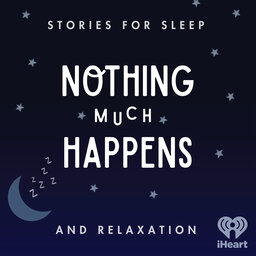Originally Aired: October 10th, 2021 (Season 8, Episode 10)
Our story tonight is called The Pumpkin Farmer, and it’s a story about a family tradition and the harvest that comes after a season of careful tending. It’s also about a long table set out beside the barn with every chair taken, a flannel shirt with the sleeves rolled up, and living in step with the seasons.
Subscribe for ad-free, bonus, and extra-long episodes now, as well as ad-free and early episodes of Stories from the Village of Nothing Much! Search for the NMH Premium channel on Apple Podcasts or follow the link: nothingmuchhappens.com/premium-subscription.
Save over $100 on Kathryn’s hand-selected wind-down favorites with the Nothing Much Happens Wind-Down Box. A collection of products from our amazing partners:
-
Eversio Wellness: Chill Now
-
Vellabox: Lavender Silk Candle
-
Alice Mushrooms: Nightcap
-
NutraChamps: Tart Cherry Gummies
-
A Brighter Year: Mini Coloring Book
-
NuStrips: Sleep Strips
-
Woolzies: Lavender Roll-On
Listen to our new show, Stories from the Village of Nothing Much, on your favorite podcast app.
Join us tomorrow morning for a meditation at nothingmuchhappens.com/first-this.
 Nothing much happens: bedtime stories to help you sleep
Nothing much happens: bedtime stories to help you sleep


